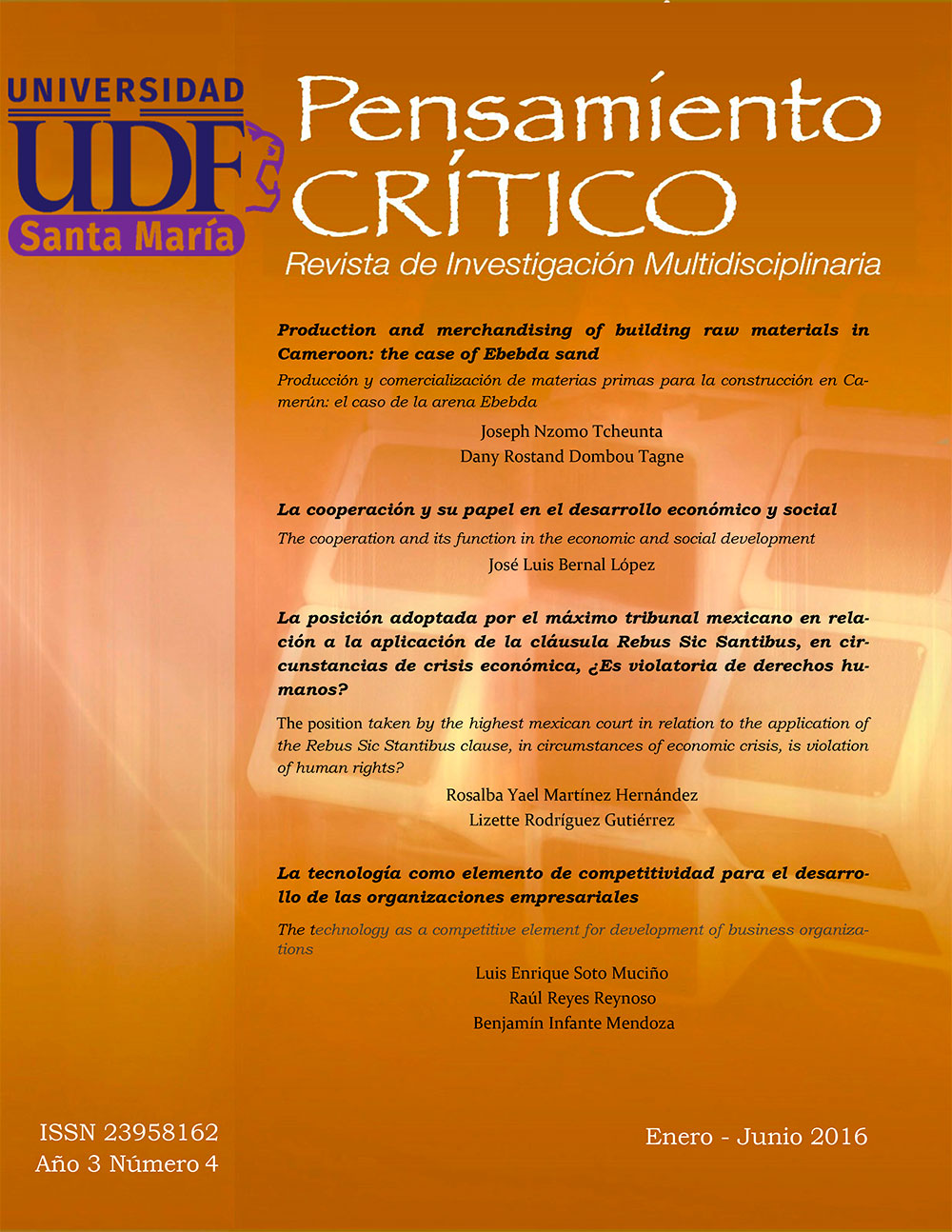Abstract
The aim of this paper is to analyze the role of cooperation in economic and social development. For this purpose the principles of institutional economics, evolutionary biology and game theory in a mixture that has the ability to expand the understanding of these social phenomena are used. The five mechanisms that altruistic cooperation is based are applicable to the development of societies and by the theory of institutional economics and game theory is possible to model many of the behaviors of economic and social actors in the complex game interactions in which they operate. We conclude that cooperation is an element that has allowed the development of the institutions that are the basis of development of societies. While uncoordinated activities of individuals pursuing their own welfare occur frequently results in the words of Bowles (2010) all try to avoid.
References
Akerloff, G & Shilller. R. (2009). Animal spirits: cómo influye la psicología humana en la economía. Barcelona: Gestión 2000.
Blyth, M., Hodgson G. M., Lewis O. & Steimo, S. (2011). Introduction to Special Issue on Evolution of Institution. Journal of Institutional Economics, 7, 299-315.
Bowles, S. & Gintis, H. (2002). Homo reciprocans. Nature, 415, 125-128. Disponible en: www.nature.com
Bowles, S. (2010). Microeconomía: Comportamiento, instituciones y evolución. Edición virtual. Disponible en: https://bowlesmicroeconomia.uniandes.edu.co/
Dror, Y. (2007). Salir del paso, ¿“ciencia” o inercia? En Aguilar V. Luis (editor). La hechura de las políticas, pp. 201-226. México: Miguel Ángel Porrúa.
Fehr, E. & Gätcher, S. (1998). Reciprocity and economics: The economic implications of Homo Reciprocans. European Economic Review, 42, 854- 859.
Garrido, F. (2013). Aproximación a una fundamentación ecológica de la democracia, en Dilemata, Revista Internacional de Éticas Aplicadas, 5, (12) 63-74.
Hauser, M. D. (2009). El cerebro moral. Barcelona: Paidós.
Laker, D. R. & Williams, M. L. (2003). Nepotism Effect on Employee Satisfaction and Organizational Commitment: An Empirical Study. International Journal of Human Resources Development and Management, 3(3) 191-202.
Majone, G. (1997). Evidencia, argumentación y persuasión en la formulación de políticas. México: Fondo de Cultura Económica.
Nowak, M. (2006). Five Rules for the Evolution of Cooperation. Science. 314, 1560-1563. disponible en: http://science.sciencemag.org/content/314/5805/1560.full
Trievers, R. L. (2008). The evolution of reciprocal altruism. Quarterly Reviews of Biology, 46 (1), 35-37.
Zaggl M. A. (2014). Eleven mechanisms for the evolution of cooperation. Journal of Institutional Economics, 10 (2) 197-230.

This work is licensed under a Creative Commons Attribution-NonCommercial-NoDerivatives 4.0 International License.
Copyright (c) 2025 Pensamiento Crítico. Revista de Investigación Multidisciplinaria

